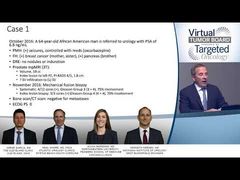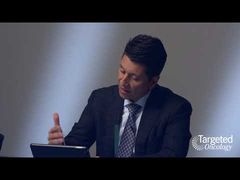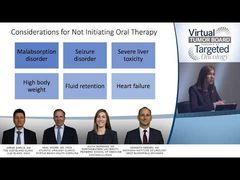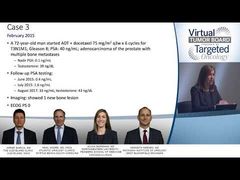
Agarwal Discusses the Updated Results of the TITAN Trial of Apalutamide in mHSPC
Neeraj Agarwal, MD, discusses the updated results of the phase 3 TITAN study, which analyzed the efficacy of apalutamide plus androgen deprivation therapy versus ADT plus placebo in patients with metastatic hormone-sensitive prostate cancer.
Episodes in this series

Neeraj Agarwal, MD, the senior director of clinical research innovation at the Huntsman Cancer Institute, discusses the updated results of the phase 3 TITAN study (NCT02489318), which analyzed the efficacy of apalutamide (Erleada) plus androgen deprivation therapy (ADT) versus ADT plus placebo in patients with metastatic hormone-sensitive prostate cancer (mHSPC).
According to Agarwal, the study led to the approval of apalutamide in this patient population. In total, 1052 patients were enrolled and were randomized 1:1 to each treatment arm. At a median follow-up of 22.7 months, the combination was associated with significant overall survival and progression-free survival (PFS) benefit over the placebo.
Eventually, the study was unblinded, according to Agarwal. This led to a 40% crossover from the placebo arm to the combination arm. Even with this crossover, at 44 months, the combination was associated with a 35% reduction in the risk of death compared to the placebo.
































































